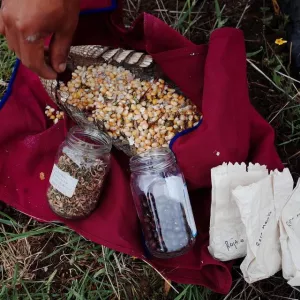Colombia could broker historic global agreement to share genetic diversity’s digital wealth
When you mention “digital sequence information” or its initials (DSI) to someone, chances are they’ll have no idea what you’re talking about. In short, DSI is a placeholder term in policy circles for the blueprints of life – DNA and other genetic information – stored in databases. Thanks to rapid technological advances, generating DSI is inexpensive, and accessing it is

Colombia could broker historic global agreement to share genetic diversity’s digital wealth
When you mention “digital sequence information” or its initials (DSI) to someone, chances are they’ll have no idea what you’re talking about. In short, DSI is a placeholder term in policy circles for the blueprints of life – DNA and other genetic information – stored in databases. Thanks to rapid technological advances, generating DSI is inexpensive, and accessing it is easy and usually free (at least from publicly managed databases), revolutionizing how we make everything from vaccines and new crop varieties to cosmetics and environmentally friendlier laundry detergents. But as of today, benefit sharing from the use of DSI is not subject to any international regulations.
The “s” in DSI, unfortunately, does not stand for “simple.” Getting the world to agree to rules for accessing and sharing DSI– which also encompasses RNA, proteins, other genetic information, and even traditional knowledge— is a complex exercise. This fall, Colombia will be hosting the 16th meeting of the United Nations Convention on Biological Diversity (CBD), or COP16, guiding the final chapter of deal-making that aims to conclude the process.
In some ways, DSI negotiations mirror the late-to-the-party debates on regulating artificial intelligence: Technology is moving much faster than policymakers, the issues are poorly understood by non-specialists, and competing interests and poor cooperation confound the process.
And DSI is only part of the global biodiversity conservation effort: even the best-case decision on benefit sharing will not provide the resources necessary to reverse the trend of biodiversity loss. Many other forms of financial and policy support and reformed practices in a wide range of sectors will be necessary to achieve that noble goal.

